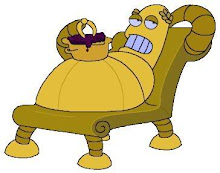
2010 was expected and announced last years as the time of consolidation of 200 years of the Chilean Republic. In the last years of the Bachelet’s administration, several TV programs, political projects and cultural manifestations tried to reflect about the history of our country, promoting to remember and evaluate the actors that contributed to the construction of the nation. Considering 2010 as a year of culmination of this memory process, I will try to express how the government has been trying to neutralize some political interpretations of our History and our present and to show a “reconciled” (hegemonic) impression of them.
Firstly, this year started with a terrible episode: the 27th February earthquake, which affected to almost all of the central and southern regions. It ended with some towns, where people couldn’t work and live more. At this time, some institutions were acussed of guilt because of the bad diffusion of this fact (the earthquake) to all the territory. Moreover, the mass media and the government put the attention on condemning the people who stole things when it was time of shortage of supplies. The problems with institutions didn’t have the attention that looters won that time. The idea of attacking to these people was (implicitly) legitimized gradually. That time, Michelle Bachelet was finishing her term of office and Sebastián Piñera assumed the conflict giving a message of hope and trying to emphasize on the National Unity. Then, this political strategy arrived and has been a way of ignoring the conflicts that constitutes to all the nations of the world. As an expression of it, the Education Ministry had didn’t know the manifestations of the students and professors because of his intentions of privatize this area. The idea of the Chilean History promoted by the government could also be understood by analyzing their position on some historical dates. In September 11th, Piñera said that this was a date to celebrate to the National Unity. Also, when some mapuche people started a hunger strike against the Antiterrorist Law, the government tried to ignore to their demands and treat them as humans (and not as political actors), carrying about their lives but not on their political requirements.
I think that Piñera’s government had tried to be unaware of the political manifestations and to present an illusory lecture of the History, presenting to the political scenary as one of National Unity. The big problem with that is that this process has been reinforced by the mass media, which (In the case of the mapuche people) didn’t show their situation for a long time. I would like to end saying that this could be dangerous for democracy, because this interpretation ignores that conflicts are the base of this system and denies any possibility of saying publicly a critic discourse.
